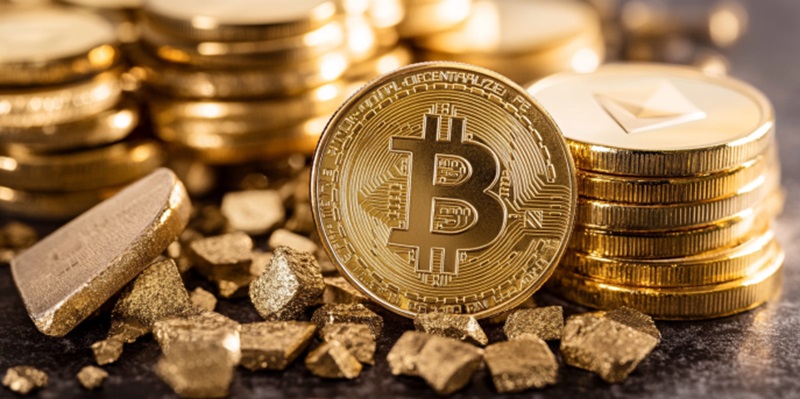In a world grappling with escalating global debt and potential currency instability, the investment landscape is shifting. Prominent figures like Ray Dalio, the founder of Bridgewater Associates, advocate for investing in "hard money" assets such as gold and bitcoin. Dalio’s remarks, delivered at a series of finance and cryptocurrency conferences in Abu Dhabi, highlight these tangible assets as preferable choices over debt-based assets. His primary concerns focus on the rising indebtedness in major economies, especially in the United States and China. This perspective prompts a critical evaluation: Is it time for investors to pivot towards gold and bitcoin amid these economic uncertainties?
Rising Debt and Currency Instability
Ray Dalio warned of an imminent debt crisis capable of destabilizing currencies. He described gold as a "well-established blue-chip alternative to fiat money," emphasizing its longstanding reputation as a safe haven during turbulent economic periods. Simultaneously, Dalio acknowledged bitcoin as a modern digital alternative, terming it a "younger generation’s alternative to gold." Both assets have recently experienced near-record highs, with bitcoin notably surpassing $100,000. This surge can be attributed to investors’ desires for stability amid economic volatility, geopolitical tensions, and erratic monetary policies. The rush towards these assets underscores a broader trend where "hard money" becomes increasingly attractive during times of surging debt levels.
Dalio traced the cyclic nature of currency dominance and financial stability to three concurrent cycles: the generation of debt and financial assets, internal conflicts driven by wealth inequality, and the rise of new powers challenging prevailing currencies. These cycles indicate that the current financial landscape may be at a pivotal point. As these three cycles converge, the stability of traditional currencies could be significantly undermined, leading investors to seek refuge in assets with controlled supplies or those linked to physical commodities. This strategy is not merely a reactive measure but a proactive approach to safeguarding wealth against potential financial turmoil.
Systemic Risks and Global Trends
Dalio’s insights extend beyond financial advice to address broader systemic risks. He highlighted the global trend of over-reliance on excessive money printing, which jeopardizes the stability of traditional currency systems. This practice is not confined to the United States but is a widespread phenomenon, indicating a structural vulnerability within the global financial system. In his view, the excessive creation of money could lead to devaluation and loss of purchasing power, further destabilizing economies. This scenario necessitates a strategic shift towards tangible assets like gold and bitcoin, which are perceived as more resilient in times of economic instability.
In a recent CNBC interview, Dalio also explored historical analyses of global reserve currencies, such as the Dutch guilder, British pound, and US dollar. He suggested that the US dollar currently navigates a critical phase where debt and credit are influencing purchasing power more than ever before. This phase is characterized by unprecedented levels of global debt, which could have far-reaching implications for the stability of the US dollar. By understanding these historical precedents, investors can better appreciate the significance of diversifying into "hard money" assets as a hedge against potential devaluations and financial disruptions.
The Case for Diversifying Investments
In a world facing rising global debt and potential currency instability, the investment landscape is evolving. Notable figures like Ray Dalio, the founder of Bridgewater Associates, recommend investing in "hard money" assets such as gold and bitcoin. Dalio’s insights, shared at various finance and cryptocurrency conferences in Abu Dhabi, emphasize the advantages of these tangible assets over debt-based investments. His main concerns revolve around the increasing debt levels in major economies, particularly in the United States and China. As a result, investors are encouraged to consider whether it’s time to shift their focus towards gold and bitcoin in light of these economic challenges. With the potential for currency devaluation and fiscal instability, these hard assets may offer a more stable investment option. The prevailing sentiment is to critically assess the composition of investment portfolios to safeguard against potential economic downturns. Is it wise for investors to reallocate their assets toward gold and bitcoin amid the current economic climate?

